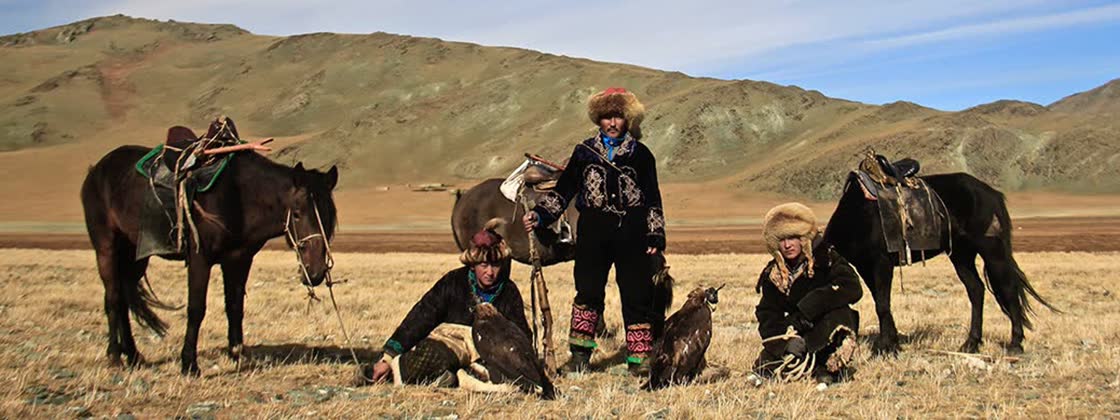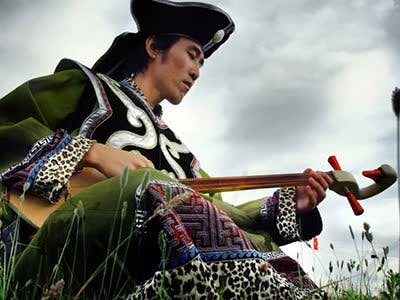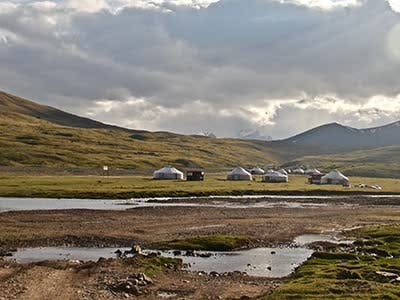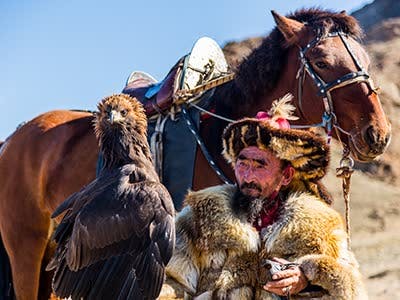The Eagle Hunter
THE ABOUT EAGLE HUNTER
Eagle hunting is a unique and captivating tradition that showcases the close relationship between humans and the natural world. The skill, dedication, and cultural significance associated with the practice have made it an important part of Mongolia's cultural heritage, offering a glimpse into the traditional way of life of the Kazakh people and their deep connection with the majestic golden eagles.
The Eagle Hunter, also known as Berkutchi, is a traditional practice and cultural phenomenon in Mongolia, particularly among the Kazakh ethnic group. Here's some information about the Eagle Hunter:

GOOD TO KNOW
- Tradition and Heritage: Eagle hunting has a long history in Central Asia, including Mongolia. It is a traditional practice passed down through generations, with skills and knowledge shared among families and communities. Eagle hunters are highly respected members of their communities and play an important role in preserving the cultural heritage of the region.
- Training and Bonding: Eagle hunting involves capturing and training golden eagles to hunt for small game, such as foxes and hares. The training process starts when the eagles are young, and the hunters develop a strong bond with their birds through consistent training, care, and mutual trust. The eagles are trained to respond to commands, fly to the hunter's arm, and hunt alongside them.
- Skills and Techniques: Eagle hunters showcase remarkable skills in handling and working with their eagles. They have an intricate understanding of eagle behavior, hunting strategies, and the natural environment. The hunters use various techniques, such as releasing the eagle from a high point to swoop down and capture prey or calling the eagle back to their arm using specific vocalizations.
- Cultural Significance: Eagle hunting is deeply intertwined with the nomadic traditions and cultural identity of the Kazakh people in Mongolia. It is considered a symbol of bravery, strength, and connection with nature. The practice reflects the resourcefulness and survival skills necessary for living in the rugged and remote landscapes of Mongolia.
- Festivals and Competitions: Eagle hunting is celebrated through festivals and competitions held in Mongolia. The most well-known event is the Golden Eagle Festival, which takes place annually in Bayan-Ölgii Province. During the festival, eagle hunters showcase their skills in various competitions, including speed and accuracy tests, traditional attire displays, and cultural performances.
- Tourism and Cultural Exchange: The art of eagle hunting has attracted the attention of tourists from around the world. Travelers have the opportunity to witness the traditional practices, meet eagle hunters, and learn about their way of life. This has provided a platform for cultural exchange and economic opportunities for the local communities.
RELATED DESTINATIONS
Throat singing, also known as Khöömei, is a traditional form of musical expression that has its roots in Mongolia and the surrounding regions. Here's some information about throat singing in Mongolia:
Altai Tavan Bogd National Park is a protected area located in the western part of Mongolia, near the border with Russia and China. Here's some information about Altai Tavan Bogd National Park:
The Eagle Hunter, also known as Berkutchi, is a traditional practice and cultural phenomenon in Mongolia, particularly among the Kazakh ethnic group. Here's some information about the Eagle Hunter:


